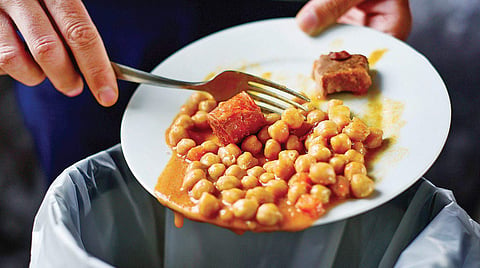

BENGALURU: Four students passionate about technology are on a mission to address a crucial problem in the food industry. According to the United Nations Environment Programme (UNEP) Food Wastage Index Report 2023, Indians waste 68.7 million tonnes of food annually. The country stands second in household food wastage, followed by China. During food production as well, 35% of the food produced ends up rotting, revealed the data.
These young students pursuing Computer Science and Electronic Communication Engineering at the International Indian Institute of Information Technology, Bengaluru (IIIT-B) found an innovative approach to tackle this wastage on a large scale – especially in expansive restaurant setups.
Pranav Bhutada, Kushal Partani, Yash Gupta, and Siddharth Chauhan developed an IT solution incorporating gas sensors for real-time monitoring of food freshness that employs advanced machine learning algorithms to analyse the sensor data charts and warn of possible spoilage. Their low-cost, user-friendly application – FreshGaurd - aims to use gas sensor technology to detect freshness and impurities, aiding producers in efficiently managing and selling perishable goods while ensuring that consumption of the products is safe, healthy, and of good quality.
Speaking to The New Indian Express, Pranav, one of the co-developers of the app, said, “The simple explanation is that all food products emit some gases be it vegetables, fruits, milk or other edible items when they start rotting. These sensors record those readings which are then sent to a machine-learning model. We have to first train the model on what is good and bad values based on the products and their parameters. Over time, the model learns the pattern and accurately identifies the health value of the perishable goods.”
He added that the app can project the data for hundreds of containers in cold storage or otherwise. “This will all be real-time data. We have made a prototype and measured the quality of milk so far. Individuals can train the model for different items. The device is cost-effective, all the sensors combined only cost Rs 1,000 in the current market price .”
The device will have a network of 7 to 12 gas sensors based on the requirements which will be strategically positioned to detect gases such as Carbon Monoxide, Methane, Hydrogen, and volatile organic compounds whose presence can have an impact on one’s organs. The group wants their solution “to make a long-term impact” and wants to price it at Rs 2,000 to help small-scale and large businesses.